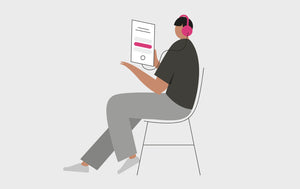‘Hearing Care for All’ says the WHO
It’s time to talk about hearing loss and to improve access to hearing care support on a global scale.
This year, for the first time, the World Health Organisation (WHO) has published a ground-breaking report on how best to treat significant hearing loss, a condition that is estimated to affect a staggering 430 million people around the globe. This number is likely to extend to 700 million by the middle of the century.
Triggered by the World Health Assembly resolution in 2017, the World Report on Hearing (WRH) was created to provide Member States a comprehensive guide to ear and hearing care. The aim is to offer strategic, evidence based guidance to accelerate the integration of hearing resources into healthcare systems around the world.
The fact is, hearing loss can often be prevented. Where it can’t, there are cost effective solutions available that can make an enormous difference to those living with hearing impairment. In short, the report emphasises access to such life changing hearing care should be made accessible to all.
Hearing care solutions should be ‘people-centred’ says the WHO.
According to the WRH report, global accessibility to high-quality hearing care should be a priority, where ear and hearing health is centred around the individual and their specific rehabilitation needs. Although the report reflects a global requirement, significant focus is placed on less wealthy countries where demand outstrips the availability of hearing services and resources.
Working in collaboration with some of the world’s leading experts in hearing care, the report suggests cost-effective solutions to the problem, taking into account specific cultural requirements. The findings of the report indicate that by implementing a hearing care intervention plan to a national health system, not only would the wider population benefit from the service, but there would also be significant cost benefits and savings to be made.
Each person has a different hearing need so the solution must be equally bespoke.
When weighing up the appropriate hearing interventions, it is not just the clinical diagnosis that has to be taken into account. Lifestyle choice must also be considered. What are their communication needs? Are they highly sociable or do they live quietly? What environmental factors are at play? How easy is it for them to access the appropriate help and support? A holistic approach to tackling hearing loss should ensure the best possible outcome.
With the publication of the WRH Report, the WHO will no doubt be on hand to help implement their own recommendations and make a difference to millions.


